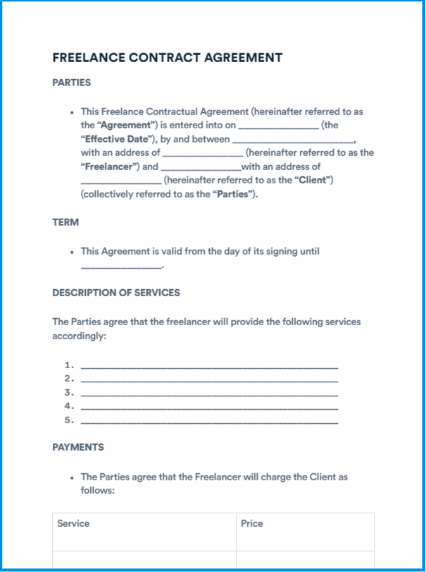
In the world of freelancing, having a solid contract in place is essential for protecting both the freelancer and the client. A freelance contract outlines the terms of the project, including payment details, deadlines, and project scope.
While verbal agreements can be binding, having a written contract provides a clear record of the agreed-upon terms and can help prevent misunderstandings or disputes down the line.
What is a Freelance Contract?
A freelance contract is a document that freelancers use to formalize their agreement with clients. It lays out the terms of the project, including the scope of work, payment schedule, deadlines, and any other relevant details.
This contract serves as a legally binding agreement between the freelancer and the client, ensuring that both parties are on the same page before work begins.
Why Use a Freelance Contract?
Using a freelance contract offers several benefits for both freelancers and clients. Here are some of the reasons why having a contract in place is important:
- Clarity: A contract clearly outlines the expectations and responsibilities of both parties, reducing the likelihood of misunderstandings.
- Legal Protection: In the event of a dispute, a written contract can serve as evidence of the agreed-upon terms.
- Professionalism: Having a contract in place shows clients that you take your work seriously and are committed to delivering high-quality results.
- Payment Security: A contract specifies the payment terms, ensuring that freelancers are compensated fairly for their work.
How to Create a Freelance Contract
Creating a freelance contract doesn’t have to be complicated. Here are some steps to help you draft a comprehensive contract:
1. Identify the Parties: Begin by identifying the freelancer and the client involved in the agreement.
2. Outline the Scope of Work: Clearly define the project scope, including deliverables, deadlines, and any specific requirements.
3. Specify Payment Terms: Detail the payment schedule, rates, and any additional fees or expenses.
4. Include Confidentiality and Non-Disclosure Clauses: Protect sensitive information by including clauses that address confidentiality and non-disclosure.
5. Address Revisions and Amendments: Outline the process for making revisions to the project scope or terms of the agreement.
6. Include Termination Clause: Specify the conditions under which either party can terminate the contract.
7. Signatures: Once the contract is finalized, both parties should sign and date the document to make it legally binding.
Examples of Freelance Contracts
While there are many templates available online for freelance contracts, it’s important to customize the contract to fit the specific needs of your project. Here are some key elements that you might include in your contract:
- Project Description: Detailed description of the project scope and deliverables.
- Payment Terms: Breakdown of payment schedule, rates, and any additional fees.
- Intellectual Property Rights: Clarification of who owns the rights to the work produced.
- Confidentiality Agreement: Protection of sensitive information shared during the project.
- Indemnification Clause: Liability protection for both parties in case of legal action.
- Dispute Resolution: Process for resolving disputes or disagreements that may arise.
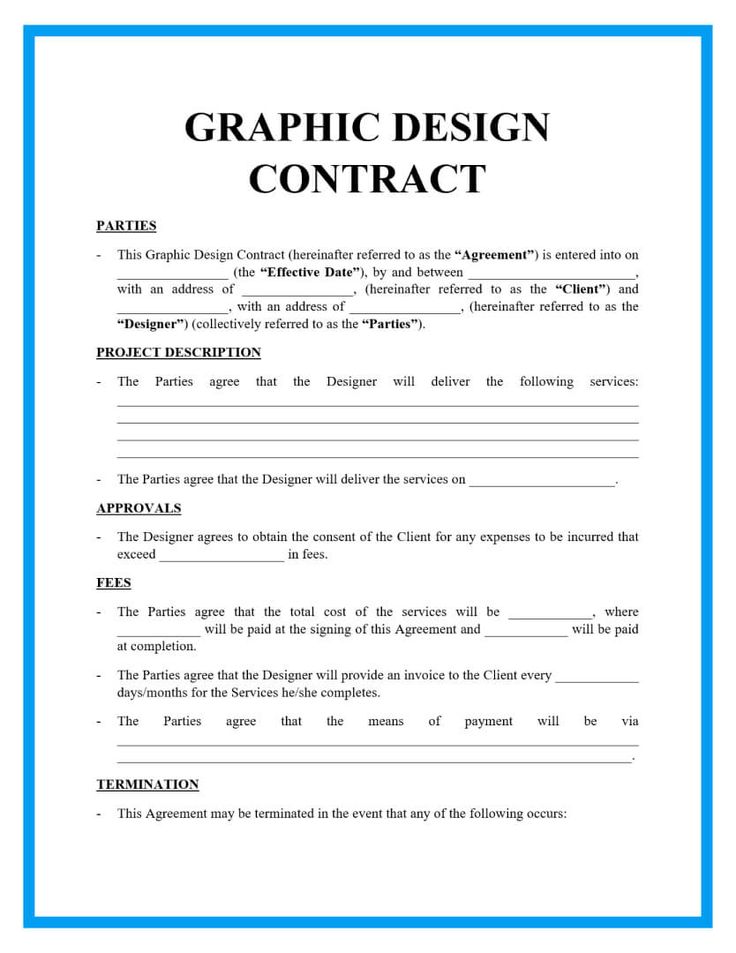
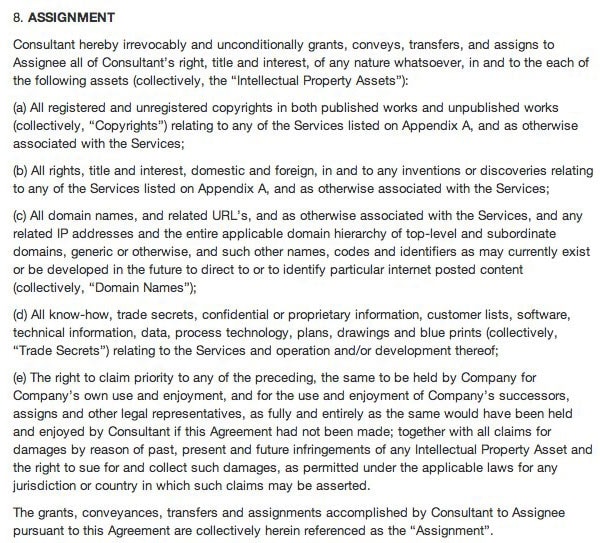
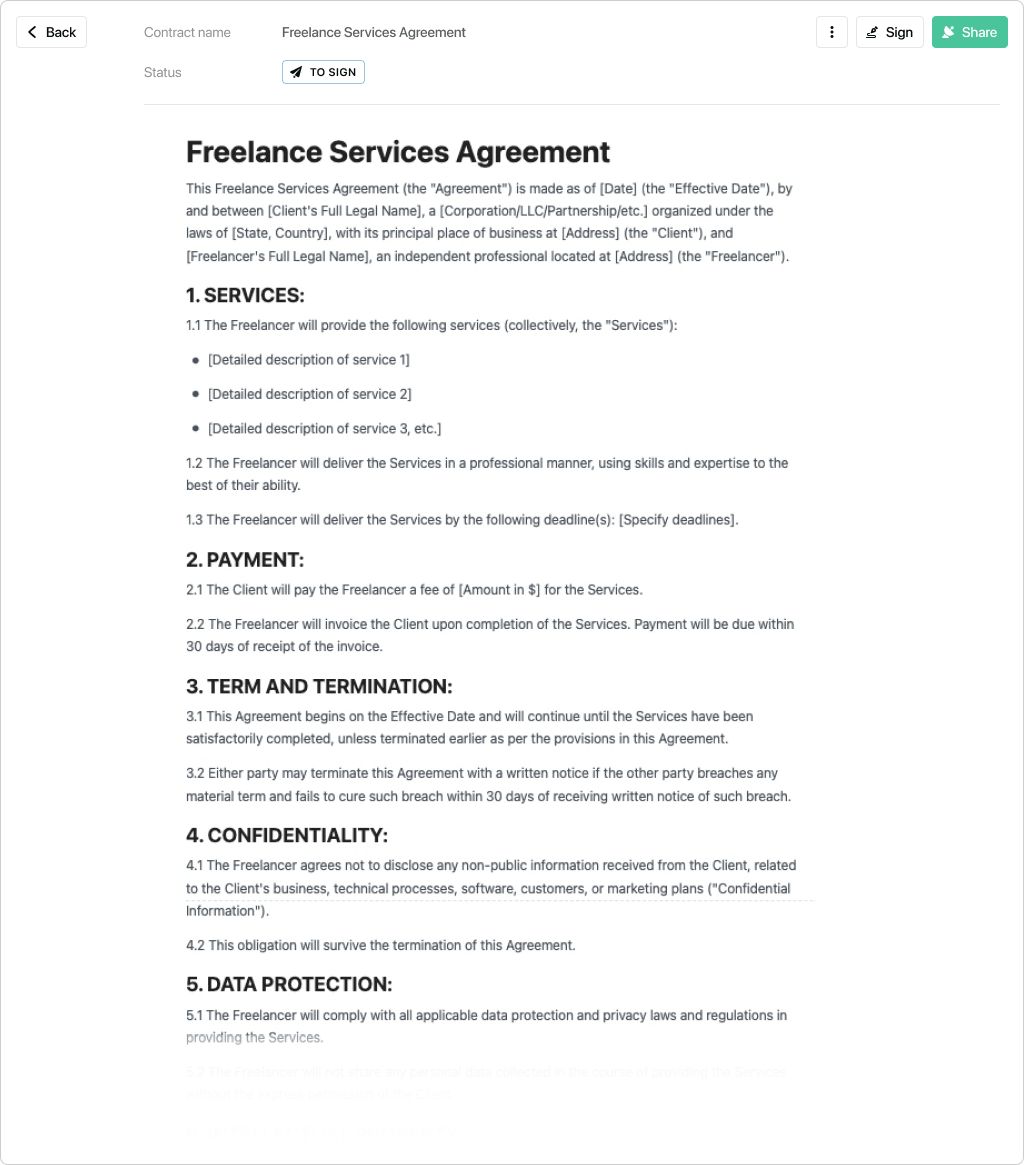
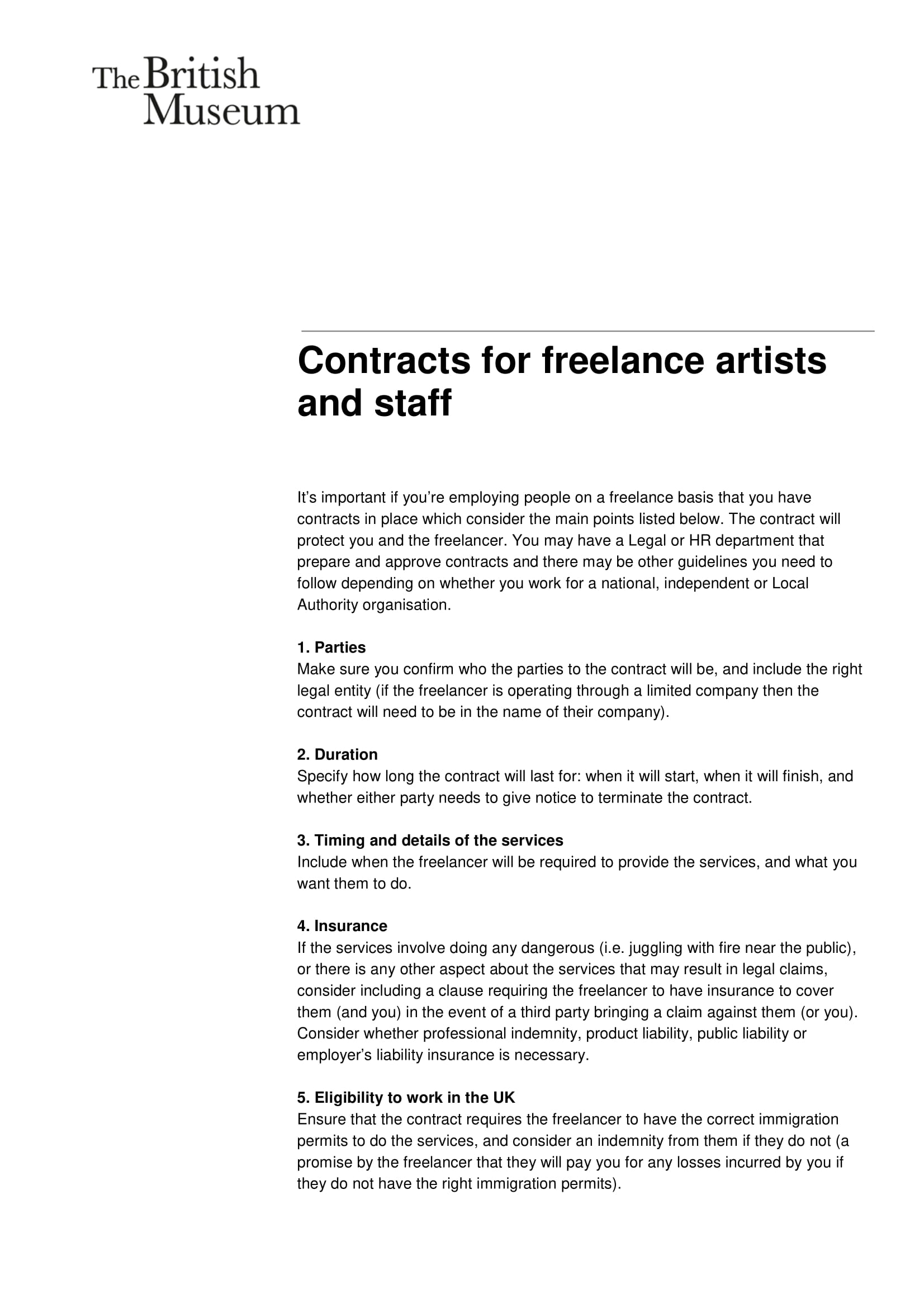
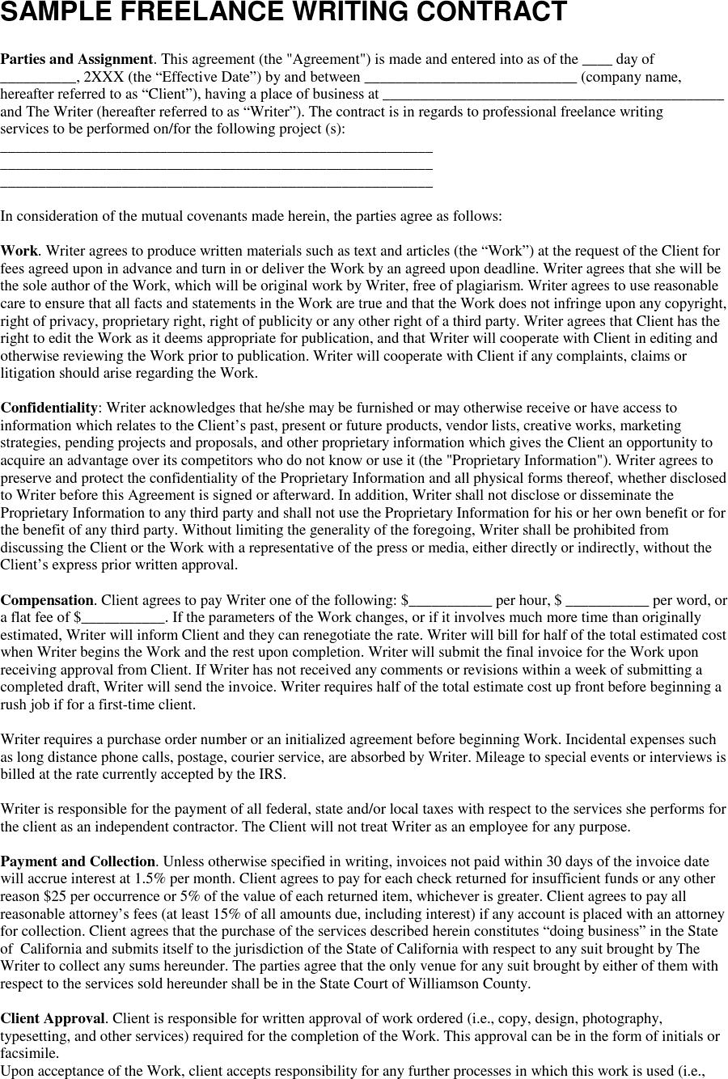
Tips for Successful Freelance Contracts
To ensure that your freelance contract is effective, consider the following tips:
- Be Specific: Clearly define the scope of work, deadlines, and payment terms to avoid misunderstandings.
- Use Plain Language: Avoid legal jargon and use simple language that both parties can easily understand.
- Review with a Lawyer: If you’re unsure about any legal aspects of the contract, consider consulting with a lawyer to ensure it’s legally sound.
- Keep Records: Make sure to keep a copy of the signed contract for your records and refer back to it as needed.
- Update as Needed: As the project progresses, be open to revising the contract to reflect any changes in scope or terms.
In conclusion, having a freelance contract is an essential part of freelancing that can help protect both freelancers and clients. By creating a clear and comprehensive contract, freelancers can establish a solid foundation for successful collaborations and ensure that both parties are on the same page from the start.